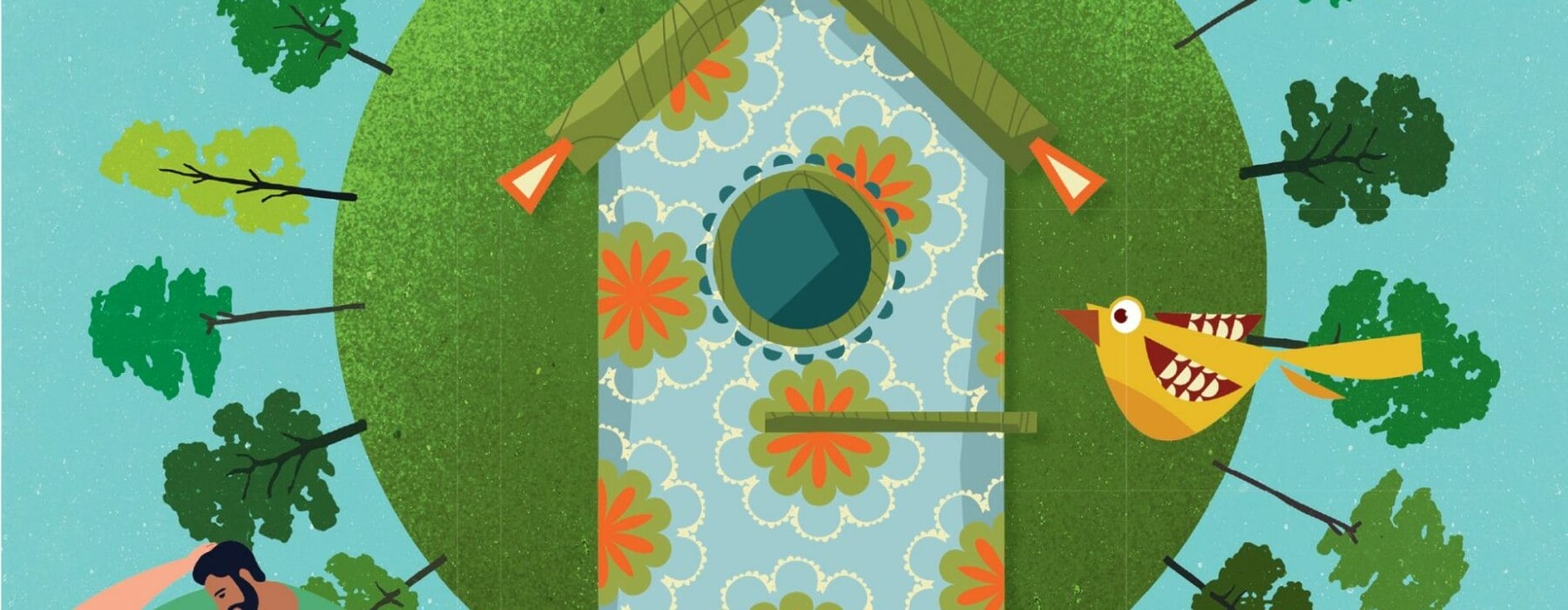As kids leave home, parents fret about the gap they’ll leave, but Jacqui Maguire says empty nest syndrome is a myth, and most people enjoy this liberating phase of their lives.
Come March, the family home that was full of summer chatter can fall deathly silent. The departure of young adult children to university, whether as new students or returners, has been reported to have a devastating impact on the parents’ wellbeing. Empty nest syndrome was a term popularised by sociologists as early as 1914, and continual coverage by the media has firmly cemented this phenomenon as a societal truth.
Empty nesting describes a transitional period in life characterised by loneliness and loss. Parents are thought to experience symptoms such as sadness, psychological distress, anxiety, depression, a loss of purpose and meaning in life, and even cognitive impairment. Full-time mothers who have dedicated a large portion of their adult existence to raising their children are said to fare worst, along with couples with unfulfilling relationships.
Yet how truthful are these statements? Is there a body of hard evidence supporting this cultural knowledge or is empty nesting pure myth? If your kids have flown the coop and you skipped the devastation and despair, does that mark you as a less-earnest parent? Should you be preparing yourself for a tidal wave of guilt?
The short and long of it is, NO. When put to the test by psychologists (many of whom did not personally experience the stereotyped symptoms), empty nest syndrome lacked credibility. Rather, what their research shows is that a number of parents in fact report a higher sense of life satisfaction, enhanced relationships (romantic and platonic) and additional time to pursue their own goals when their children leave home.
Dr Karen Fingerman, a professor at the University of Texas, further highlighted that seeing a child start down the path towards adulthood can provide a feeling of joy and pride. You have grown and raised a successful human – well done to you! Importantly, for families who may have struggled with the developing independence of teens, the parent/child relationship can actually improve when children leave home.
“People may worry about losing their child when the child leaves home,” says Karen. “In fact, they’re not. They’re going to have a more mature, more emotionally meaningful and deeper relationship with them to look forward to.”
Further, the evidence challenges gender stereotypes, demonstrating that fathers may find this transition hardest. Research published by Wheaton College found that many women proactively prepare for life beyond children at home, be it returning to study or work, pursuing volunteer opportunities or discovering new interests. In comparison, men were less likely to foresee this transition as significant, leaving them less emotionally prepared and more vulnerable.
However, it’s not the same for everyone. Some children experience a bumpy road into adulthood, some relationships will have eroded over time (which may have been masked by the busyness of family life), and people from certain cultures and sociodemographic groups have been found to experience wellbeing dips when their children leave. Every parent, no matter what their circumstances, can benefit from early reflection and planning. Here are a few ideas to get you started:
- Reflect on interests you had pre-children that have fallen by the wayside. How could you reincorporate these into your weekly life?
- If you are in a relationship, discuss and plan how you can refresh and optimise your time together. This could be cooking the evening meal together, hosting dinner parties, watching Netflix series, or going on regular bushwalks, date nights or weekend getaways.
- Whether you’re single or in a couple, plan who you wish to spend your time with. Which family members and friends enrich your life? Prioritise them!
- Talk and plan with your children about the contact you’ll have as a family, such as weekend video chats or an annual family holiday. Research shows that parents who talk with their children at least once a week have significantly better wellbeing.
- Openly share and celebrate with your children in their new endeavours.
Jacqui Maguire is a registered clinical psychologist with a passion for science communication. She is a prominent mental health and wellbeing thought leader, a sought-after keynote speaker and the founder of popular podcast Mind Brew.








